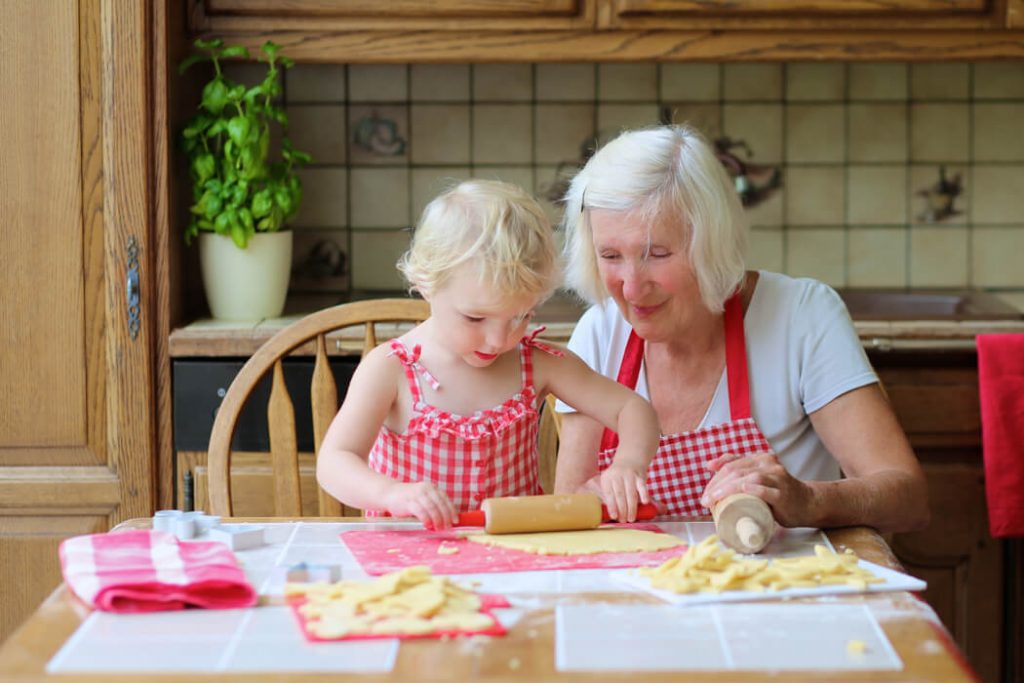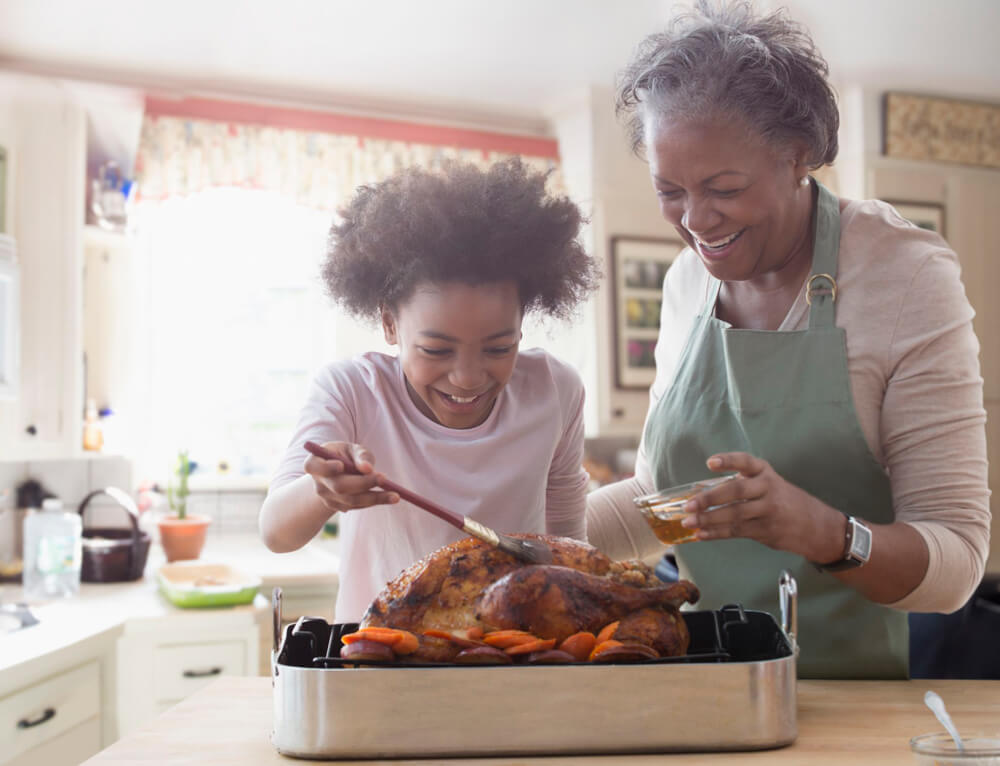Is Your Mother a Magician in the Kitchen? When Food is Love
An Ode for Mother’s Who Cook from the Heart

Every memory of my mother leads back to my childhood kitchen. Before the cooking channel, before The Joy of Cooking, before celebrity chefs battled like samurai or gladiators, there was my mom, the original culinary warrior, standing over a vat of her latest creation, hollering:
“Come here and taste this!”
Part gourmet magician, part mess sergeant, my mother whipped up meals with startling speed and staggering skill. As if the seven of us wasn’t enough, my father had the habit of bringing home odd loners from his shop; carpenters, electricians, delivery men — all isolated fellows. He was confident that my mother’s home cooking would cheer them up.
The visitor always stood sheepishly in the kitchen doorway, hat in hand. My father inevitably would make an announcement,
“Kids, say hello to Dandy Dan.”
“Hi, Dandy Dan.”
“He’s going to have dinner with us.”
“I don’t mean to trouble you, Mrs. G.”
“Oh please. Sit.”
Seconds later, a warm plate landed on the table, and the overjoyed Dandy Dan transformed into a boy at his birthday party. An old bachelor from the neighborhood, Dandy Dan became our favorite frequent guest.
When you sat at my mother’s kitchen table, no matter who you were, you felt loved.
Nothing please my mother more than guests eating beyond their fill. Dandy Dan was both gracious and gluttonous; he had a heartwarming way of trying to express gratitude while shoveling down forkfuls of food.
“My god…delicious…wow…so good. This is…Hmm…Goodness…”
I don’t think Dandy Dan ever finished a sentence.

Christmas was an epic production filled with endless carloads of strangely accented relatives arriving to sit at our makeshift holiday table. It was the happiest of days, brimming with good cheer, whoops of laughter, and bear hugs that lifted children off the floor and set their feet dancing in the air.
They say love is the first ingredient you taste in a family meal. This must be why Christmas sparkles so brightly in my memory; never was food prepared with more loving precision.
Meatballs were meticulously measured and rolled, pasta was methodically hung to dry, the ham was dressed, re-dressed and glazed, mushrooms were stuffed fat and full, and baskets of fruit were diced, sliced and pureed into nectarous salads and fruitcakes. For dessert, a parade of big faced pies, followed by colorful cakes of every size.
Most magical to my siblings and me were my mother’s Christmas cookies. We watched as she transformed bags of flour and pounds of butter into snowmen, pine trees, and holly leaves; all brush painted with red and green food dye, sprinkles, and decorated with tiny marshmallows cut into stars.
Near the end of the dinner, there were traditional pleas for mercy from our guests.
“No more! Please! Enough!”
On cue, my mother would appear with another mouth-watering dish and their cries slowly gave way to gentle resignation.
“Oh, well. Just a little more.”
It was impossible to argue with my mother.
I could write pages and pages about my mother’s fearlessness, her fierce devotion to her family. I could spin many a yarn about how she fed us on camping trips from a single pot, or how she could turn a tin can of Campbell’s Cream of Mushroom soup into a culinary masterpiece.
But all those stories would have the same message: For my mother, cooking was never a service; it was the deepest, purest act of love. My mother’s food is the glue that still holds my family together and binds our childhood memories. Whenever I hear pots and pans rattling, I see her there, dicing, slicing and humming. In the world outside our home, she was shy and avoided the spotlight. But in her kitchen, she ruled; it was a kingdom that she never relinquished. She cooked and lived — in the moment.
In her eighties, after being stricken by an aneurysm that should have ended her life, I sat beside her in intensive care. As machines peeped and flashed, I thought to myself, I never — ever — saw her this still.
The grey-haired doctor, eager to offer hope, whispered.
“If you could engage her, in some way. Get her to talk, it could help her brain to recover.”
What would we talk about?
Without thinking, I leaned forward and whispered in her ear:
“Ma, what’s your lasagna recipe?”
You see, my mother never wrote down her recipes. Not a single one. Slowly, without opening her eyes, she began to speak.
“Take a dozen fresh tomatoes, cut them in quarters…”
My mother never separated food and love; and for this, I am forever grateful. In a world of faceless fast food, she taught her children what matters most. To live, love — and cook — from the heart. In my mother’s world, the kitchen is never closed.
Happy Mother’s Day Mom!



